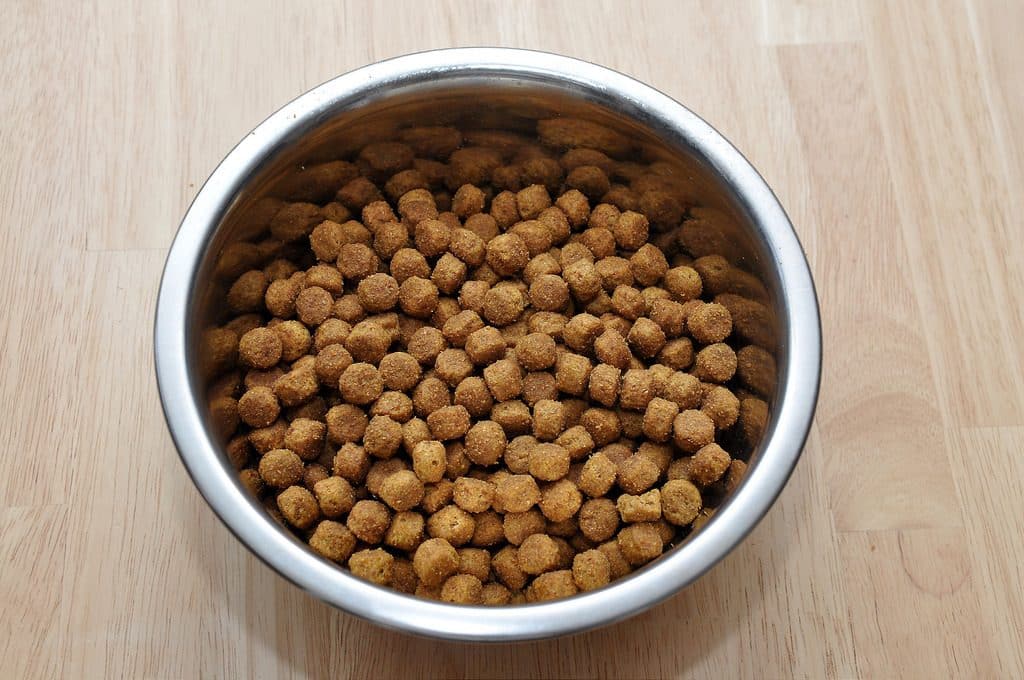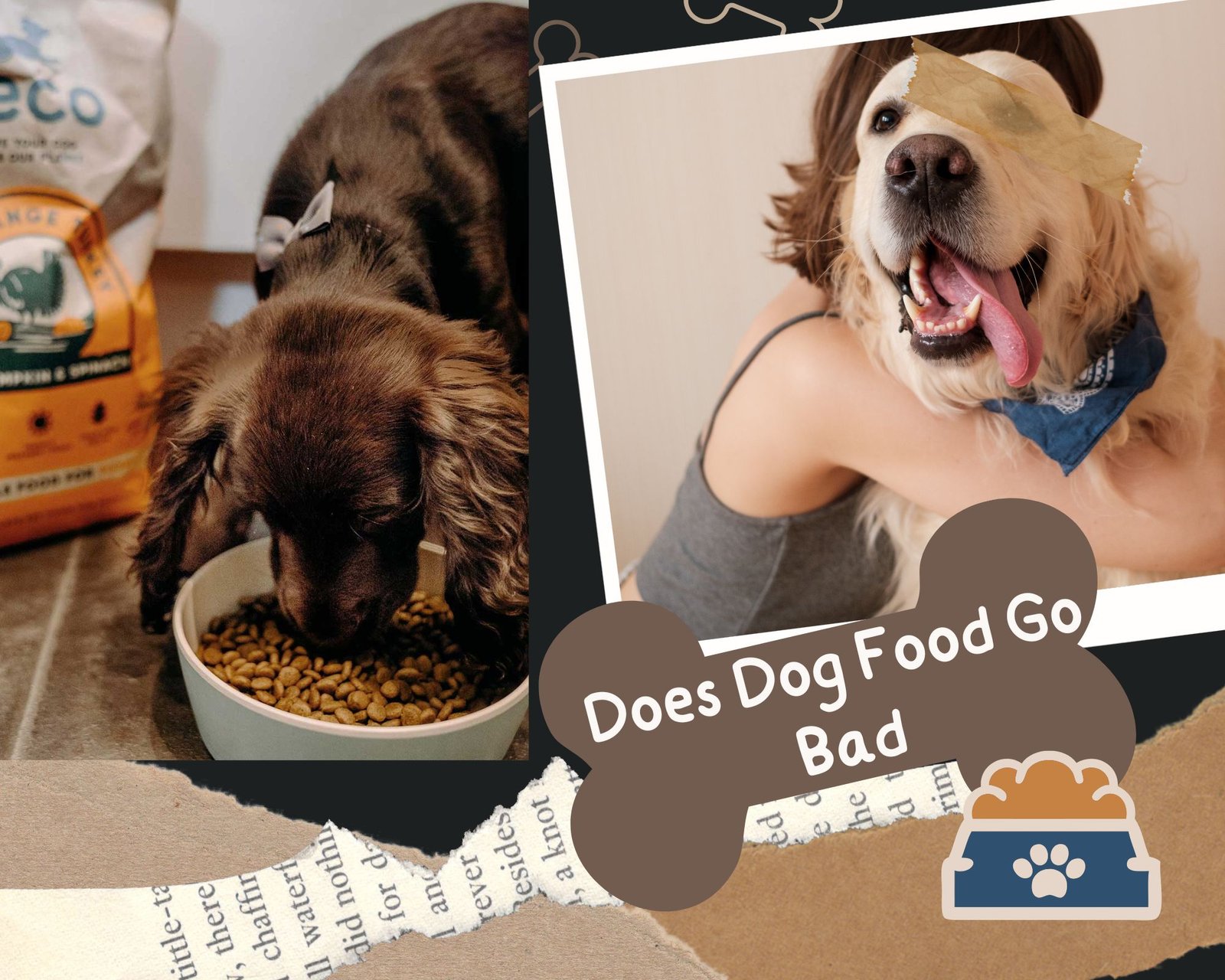How long can you keep does dog food go bad once opened? Yes, dog food can go bad over time due to oxidation and bacterial growth. Proper storage and regular checks are necessary to ensure its quality and safety for your pet.
When it comes to dog food, many pet owners wonder about its shelf life and how to tell if it has gone bad. Understanding the signs of spoilage and the best practices for storing and handling dog food can help you ensure that your pet is getting safe and nutritious meals.
We will explore the factors that can cause dog food to go bad, how to properly store it, and the signs that indicate it may have spoiled. By being aware of these factors, you can make sure that your dog’s food stays fresh and safe for consumption.
Does Dog Food Go Bad Check the full content to know more about it

Credit: www.rover.com
The Concept Of Dog Food Spoilage
Dog food is essential for your furry friend’s nutrition, but like any other perishable item, it has a shelf life. The concept of dog food spoilage is crucial for pet owners to understand, as it directly impacts their dog’s health and well-being.
What Causes Dog Food To Spoil?
Dog food spoils due to factors such as exposure to air, light, and moisture, as well as the breakdown of fats and oils. Microbial contamination by bacteria, molds, and yeasts also contributes to spoilage. Moreover, the quality of ingredients and preservatives used in the food affects its shelf life.
How To Identify Spoiled Dog Food
Identifying spoiled dog food is vital to prevent your pet from consuming harmful substances. Signs of spoiled dog food include a rancid smell, mold growth, changes in color or texture, and an off taste. Presence of pests, such as insects or rodents, is also a clear indicator of spoiled dog food.
Understanding Expiration Dates
Dog food expiration dates are essential to pay attention to as they indicate the quality and safety of the product. Just like human food, dog food can go bad over time, potentially leading to health issues for your pet. It’s crucial to check expiry dates and store food properly to ensure your furry friend’s well-being.
Decoding Dog Food Labels
Deciphering the labels on dog food can be a challenging task, especially when it comes to understanding expiration dates. However, being able to interpret these labels is essential for ensuring the health and safety of your furry friend. Let’s take a closer look at what these expiration dates mean and how to make sense of them.
Factors Affecting Shelf Life
Dog food’s shelf life is influenced by a number of factors. By understanding these factors, you can determine whether your pet’s food is still safe to consume or if it’s time to toss it out. Here are some important things to think about:
- Ingredients: The quality of the ingredients used in dog food plays a significant role in determining its shelf life. Natural preservatives, such as Vitamin E and Vitamin C, can help extend the durability of the product.
- Storage: Proper storage is crucial for preserving the quality of dog food. Exposure to air, moisture, heat, or sunlight can accelerate spoilage. Storing dog food in a cool, dry place and sealing it tightly after each use can help maintain its freshness.
- Packaging: Packaging also plays a vital role in preserving the quality of dog food. Look for bags or containers that are airtight and provide a barrier against external elements.
- Added Preservatives: Some dog foods contain artificial preservatives, such as BHA, BHT, or ethoxyquin. These additives help extend the shelf life but may have potential health risks. Opting for natural preservatives is often a safer choice.
Understanding the factors that affect the shelf life of dog food is essential for providing your canine companion with a safe and nutritious diet. By considering the ingredients, storage conditions, packaging, and preservatives used, you can ensure that your pet’s food stays fresh and wholesome.
Does Dog Food Go Bad Click here for more details about this-Click here
Health Risks Of Feeding Expired Dog Food
Potential Risks To Your Dog’s Health
Feeding your dog expired food may pose serious health risks. When dog food goes bad, it can harbor harmful bacteria, mold, and toxins that can negatively impact your dog’s well-being. It’s important to understand the potential risks associated with feeding your pet food that is past its expiration date.
Common Illnesses Linked To Spoiled Food
Several common illnesses may be linked to feeding your dog spoiled food. These include gastrointestinal issues such as vomiting, diarrhea, and stomach pain. Additionally, consuming expired dog food may lead to food poisoning, which can cause more severe symptoms such as lethargy, dehydration, and even organ failure.
Prolonging The Shelf Life Of Dog Food
If you are a pet parent, ensuring that your dog’s food stays fresh and safe for consumption is important. By following proper storage techniques and implementing a few tips, you can prolong the shelf life of dog food and keep your furry friend healthy and happy.
Proper Storage Techniques
Dog food, like any other food product, requires proper storage to maintain its freshness and nutritional value. Here are some storage techniques to keep in mind:
- Store dog food in its original packaging, as it is designed to preserve freshness and prevent the entry of moisture and pests.
- Keep dog food away from light, heat, and humidity, as these can accelerate the degradation of the food.
- Seal opened bags of dog food tightly, ensuring no air or moisture can enter. This will prevent spoilage and maintain the food’s texture.
- Consider transferring dog food to airtight containers or bins made specifically for pet food storage. These containers help to maintain freshness and prevent pests from accessing the food.
Tips To Maintain Freshness
Maintaining the freshness of dog food is essential to ensure your dog receives the necessary nutrients. Here are some tips to help you keep dog food fresh:
- The expiration date should always be checked before buying dog food. Choose products with a later expiration date to allow for a longer shelf life once opened.
- Rotate your dog’s food by using the “first in, first out” method. Before opening new bags of food, use the previous ones.
- Avoid buying dog food in bulk if you have a small breed or if your dog’s consumption is low. Smaller, more frequent purchases can help maintain freshness.
- Keep track of the storage duration of opened bags or containers. Discard any dog food that has exceeded the recommended storage time.
- Store dog food in a cool, dry place, away from direct sunlight and extreme temperatures. This helps to preserve its taste and quality.
By following these proper storage techniques and freshness maintenance tips, you can ensure that your dog’s food stays fresh and safe for longer periods. Remember, your furry friend deserves the best, even when it comes to their food!
Utilizing Common Sense Practices
Utilizing common sense practices when it comes to dog food is crucial for ensuring your pet’s health. By following simple guidelines, you can easily determine if the food is safe for consumption.
Using Your Senses To Detect Spoilage
Your sense of smell is a powerful tool in detecting spoilage in dog food. If the food has a rancid or bad odor, it’s a clear indicator that it has gone bad and should be discarded immediately.
Inspect the food for mold or unusual discoloration. Any visible signs of mold growth or changes in color indicate spoilage. If you notice these, it’s best to err on the side of caution and not feed it to your furry friend.
When In Doubt, Throw It Out
If you are uncertain about the safety of the dog food, it’s best to discard it. Your pet’s well-being is paramount, and it’s not worth the risk of feeding them potentially spoiled food. Trust your instincts and prioritize your pet’s health.
Avoid the temptation to feed expired or questionable food to your dog, even if it seems fine at a glance. It’s always better to be safe than sorry when it comes to your pet’s diet.
Does Dog Food Go Bad Also click here to know more details about dog food-click here
:strip_icc()/GettyImages-559556403-de89dab6e06a4f7ca8a5641f7d814593.jpg)
Credit: www.thesprucepets.com
Environmental Impact Of Wasted Dog Food
The environmental impact of wasted dog food is a significant concern in our efforts towards sustainability.
Understanding Food Waste Consequences
- Wasted dog food contributes to greenhouse gas emissions through decomposition in landfills.
- Excessive food waste strains resources and energy used in the production and transportation of pet food.
Eco-friendly Disposal Practices
- Donating excess dog food to shelters or food banks helps reduce food waste and supports animals in need.
- Composting leftover food scraps can enrich soil and minimize environmental impact.
Regulations And Standards In The Pet Food Industry
In the pet food industry, regulations and standards play a critical role in ensuring the safety and quality of pet food products available in the market. Various regulatory bodies such as the FDA (Food and Drug Administration) and AAFCO (Association of American Feed Control Officials) set guidelines to ensure that pet food is produced and sold in a manner that is both safe and nutritious for animals. These regulations cover various aspects such as quality control measures and legal implications of selling expired food.
Quality Control Measures
Quality control measures are essential to ensure that pet food meets the necessary quality standards. These measures encompass every stage of production, from sourcing ingredients to packaging the final product. Manufacturers are required to follow strict guidelines to maintain the quality and safety of the pet food. This includes conducting regular testing for contaminants and monitoring nutrient levels to ensure that the food meets the required nutritional standards for pets.
Legal Implications Of Selling Expired Food
There are serious legal implications of selling expired pet food. It is crucial for manufacturers and retailers to adhere to expiration dates and ensure that products are not sold past their expiration. Violating these regulations can lead to fines and legal repercussions, as it puts the health of pets at risk. It’s important for consumers to be aware of these regulations and to check the expiration dates on pet food products before purchasing them.
Credit: www.quora.com
Alternative Solutions To Managing Dog Food Spoilage
When wondering if dog food spoils, consider alternative methods to prevent spoilage like storing in air-tight containers or refrigerating. Rotating food stock and using preservatives can also extend shelf life and keep your dog’s food fresh.
Introductory Paragraph
Dog food spoilage can be a frustrating problem for pet owners. Whether it’s due to ingredient quality, improper storage, or expiration dates, managing dog food spoilage is essential for your furry friend’s health. Fortunately, there are alternative solutions that can help you prevent waste and keep your dog’s food fresh for longer.
Homemade Dog Food Options
Many pet owners are turning to homemade dog food as an alternative to store-bought options. Making your own dog food allows you to have full control over the ingredients and ensures that your pup is getting a fresh and nutritious meal. You can customize the recipe based on your dog’s specific dietary needs and preferences. However, it’s important to consult with a veterinarian or a canine nutritionist to ensure you’re providing a balanced diet.
Switching To Dry Vs. Wet Food
Another solution to managing dog food spoilage is switching from wet to dry food or vice versa. Dry dog food has a longer shelf life and is less prone to spoilage compared to wet food. If you find it challenging to finish a can of wet dog food before it goes bad, consider transitioning your furry friend to dry kibble. Similarly, if you struggle to keep dry kibble fresh due to storage issues, switching to wet food can be a viable alternative.
If you decide to switch your dog’s food, it’s essential to do it gradually to prevent an upset stomach. Start by mixing a small portion of the new food with the old one and gradually increase the amount over a week or two. This gradual transition will help your dog adjust to the new diet and avoid any digestive issues.
Whichever option you choose, ensure that you’re providing your dog with a balanced and nutritious diet. Monitor your pet’s health and consult with a veterinarian if you have any concerns or questions.
In Conclusion
By exploring alternative solutions like homemade dog food and switching between dry and wet food, you can effectively manage dog food spoilage. These options not only reduce waste but also ensure that your furry friend is enjoying fresh and healthy meals. Remember to evaluate your dog’s specific needs and consult with professionals to provide the best nourishment for your four-legged companion.
Does Dog Food Go Bad Ask the following questions to gain better knowledge about this
Frequently Asked Questions
Does Dog Food Go Bad?
Yes, dog food can go bad over time due to oxidation and bacterial growth. Proper storage and regular checks are necessary to ensure its quality and safety for your pet.
How Do You Know If Dog Food Is No Longer Safe?
To tell if dog food has gone bad, check for mold, strange odor, or insects in the food. Look for changes in color or texture. Verify the storage guidelines and expiration date at all times.
Is It Ok For Dogs To Eat Expired Dog Food?
Expired dog food may lose its nutritional value and could potentially cause digestive issues. It is advisable not to give it to your dog.
Can Dry Dog Food Become Rancid?
Dry dog food can become rancid over time due to oxidation. Proper storage, in a cool and dry place, can help prevent this. Regularly check the expiration date and smell the food to ensure freshness.
Can Stale Dog Food Make Your Dog Sick?
Yes, stale dog food can make your dog sick due to bacterial contamination and loss of nutritional value. Always check the expiration date and store food properly.
Does Dog Food Go Bad Why do you need to know about this?
Conclusion
Understanding how dog food goes bad is vital for your pet’s health. By following proper storage and usage guidelines, you can ensure your furry friend’s safety and well-being. Regularly checking the expiration dates and looking for signs of spoilage will help you keep your dog’s food fresh and nutritious.

Hello I am Farhana I have been doing research on dogs since last 10 years. I have been doing research on dog special parts or dog food since last 10 years. I have gained knowledge about my dog in these ten years so. I want to blog about it daily.

